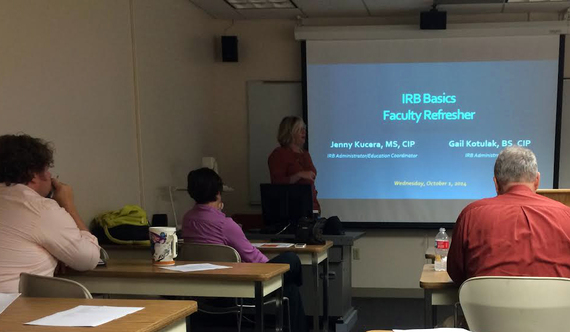Facebook now says it will apply greater internal review to research projects, but it misses the ethical point by rejecting external review. With more than one billion users worldwide, the stakes are high for social media users.
Facebook Chief Technology Officer Mike Schroepfer admits that a research project filtering posts to study emotional content should have explored a non-experimental method as an alternative.
Although this subject matter was important to research, we were unprepared for the reaction the paper received when it was published and have taken to heart the comments and criticism. It is clear now that there are things we should have done differently. For example, we should have considered other non-experimental ways to do this research. The research would also have benefited from more extensive review by a wider and more senior group of people. Last, in releasing the study, we failed to communicate clearly why and how we did it.
On his Research at Facebook blog Oct. 2, Schroepfer pointed readers to published research and areas of interest. The checks now include internal research guidelines, review, training and publication access:
•Guidelines: we've given researchers clearer guidelines. If proposed work is focused on studying particular groups or populations (such as people of a certain age) or if it relates to content that may be considered deeply personal (such as emotions) it will go through an enhanced review process before research can begin. The guidelines also require further review if the work involves a collaboration with someone in the academic community.
•Review: we've created a panel including our most senior subject-area researchers, along with people from our engineering, research, legal, privacy and policy teams, that will review projects falling within these guidelines. This is in addition to our existing privacy cross-functional review for products and research.
•Training: we've incorporated education on our research practices into Facebook's six-week training program, called bootcamp, that new engineers go through, as well as training for others doing research. We'll also include a section on research in the annual privacy and security training that is required of everyone at Facebook.
•Research website: our published academic research is now available at a single location and will be updated regularly.
Still, the fact that Schroepfer refused to be questioned by The New York Times and other media, demonstrates the shortcomings of reliance upon a for-profit technology giant to protect consumer rights.
Academic researchers, on the other hand, are bound by federal restrictions that require review of human subjects research. On my campus, we share an Institutional Review Board (IRB) with the University of Nebraska Medical Center. All faculty must complete an IRB training course and refresher modules every three years. Last week, IRB representatives met with our graduate faculty in the School of Communication to discuss updates to the review procedures.
The system is not perfect when it comes to social media research. For example, our UNO Social Media Lab has an interest in the Social Media Research Foundation's NodeXL project that uses open source software to collect Twitter data and visualize social networks. From #Ferguson to #Ebola there are real-time research questions. If you have been an active Twitter user, you might find yourself among the NodeXl graph gallery images and data.
One interpretation is that Twitter collects data and essentially makes everything available to researchers performing secondary data analysis. This would be similar to historic use of the University of Chicago National Opinion Research Center survey data, in which the U of C is responsible for research ethics in data collection.
Another viewpoint, however, would be that most social media users neither read nor understand complex social media Terms of Service (TOS) agreements with the top sites. Users may not see themselves as research subjects, and ethics demands clear disclosure. Still, Twitter is a very public platform - often presenting clearly identifiable speakers.
IRB's, as well as national research agencies, need to take a stronger lead in balancing the privacy rights of social media users with our desire to research and understand behavior. The emphasis should be on development of clear definitions and procedures. We should not accept Facebook's unilateral decision to be the lone reviewer of its human subjects research.

